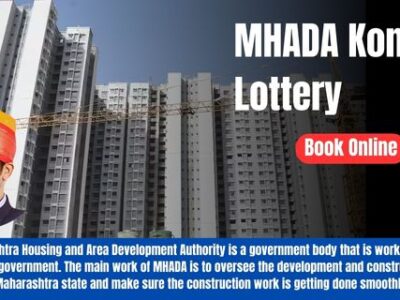Products Declining in India Because Millennials Won’t Buy them,what else millennials are buying

In recent years, global trends have highlighted a significant shift in consumer behavior, with
millennials at the forefront of a movement toward more conscious, sustainable, and techsavvy purchasing habits. This shift is particularly pronounced in India, where millennials, born
between 1981 and 1996, constitute a substantial portion of the population. Their preferences
are reshaping consumption patterns, influencing various industries, and causing certain
products to lose their appeal. Let’s take a closer look at some of the products and sectors in
India that are experiencing a decline as millennials gravitate toward newer, more innovative
alternatives.
Fast Fashion
As awareness of environmental issues rises, many millennials in India are moving away from
fast fashion brands known for their rapid production cycles and poor labor practices. Instead,
they are opting for sustainable fashion choices, such as thrifted clothing, eco-friendly brands,
and local artisans. This shift is prompting traditional fast fashion retailers to rethink their
strategies and adopt more sustainable practices.
Millennials are increasingly rejecting conventional cotton cloth due to environmental
concerns, ethical issues, and a preference for more sustainable or innovative fabrics. Cotton
farming is resource-intensive, often requiring large amounts of water and pesticides, which
conflicts with millennials’ eco-conscious values. Additionally, many prefer alternatives like
organic cotton, bamboo, or performance materials that offer greater functionality, comfort,
and lower environmental impact. There’s also a shift towards fabrics that align with ethical
consumption, as well as trends in fashion and lifestyle that prioritize comfort and
sustainability.
Single-Use Plastics
With increasing concerns about plastic pollution, millennials are leading the charge against
single-use plastics. Many are choosing reusable alternatives, such as metal straws, cloth bags,
and glass containers. This trend is not only affecting consumer behavior but also pushing
companies to innovate and offer sustainable packaging solutions.
Traditional Media
Millennials are increasingly consuming content through digital platforms rather than
traditional media like newspapers and television. Streaming services, social media, and
podcasts have become the primary sources of entertainment and information for this
demographic, leading to a decline in print media and cable subscriptions.
The “X” is promoted by millennials because they are socially conscious and want to support
causes, fashions, or goods that share their values, such sustainability, ethics, and innovation.
They are driven by a need for community, individuality, and change, and they frequently use
social media to promote causes that contradict what is normal and align with their personal
values
Conventional Banking
The rise of fintech solutions has transformed how millennials manage their finances. Many
are opting for digital banking apps and online platforms that offer convenience, lower fees,
and innovative features like budgeting tools and investment options. This trend is challenging
traditional banks to enhance their digital offerings to retain customers.
Consumer Electronics
While consumer electronics remain popular, millennials are more inclined to invest in highquality, multifunctional devices rather than purchasing multiple gadgets. For instance, they
may prefer a smartphone with advanced photography capabilities over a separate camera.
This shift is leading to a decline in sales for standalone products that do not integrate well
with digital lifestyles.
Processed Foods
Health-conscious millennials are moving away from processed and packaged foods in favor of
fresh, organic, and locally sourced options. This trend is impacting the food industry,
prompting brands to reformulate products, emphasize transparency in sourcing, and offer
healthier alternatives.
Millennials avoid processed meals for a number of reasons, one of which being their
increased consciousness of wellness and health. They are more inclined to value fresh, whole
foods since they think processed goods are associated with poor nutrition, obesity, and heart
disease. A lot of millennials are also worried about processed meals’ excessive sugar and salt
content, artificial additives, and preservatives. Furthermore, there is a trend toward more
ethical and sustainable consumption, with a preference for plant-based, organic, or locally
sourced foods. Making educated food decisions that support long-term health and
environmental well-being is a growing priority for this generation.
Revant Himatsingka is a farmer and food entrepreneur who promotes healthy food systems
and sustainable agriculture. He advocates for organic farming and a decrease in the use of
chemicals and processed foods. In order to encourage people to choose healthier, more
sustainable foods, his work focuses on providing natural, healthful substitutes and enhancing
food security.
Personal Care Products
There is a noticeable decline in the popularity of conventional personal care products that
contain harmful chemicals. Millennials are increasingly seeking out natural and organic
beauty products, leading to a surge in demand for brands that prioritize clean ingredients and
sustainable practices.
personal care devices are practical, efficient, and in line with wellness and health trends,
millennials have welcomed them. Electric toothbrushes, sophisticated hair tools, grooming
trimmers, and healthcare products like face cleaning brushes are all in style. These items
appeal to millennials who are looking for effective, at-home solutions that increase personal
care, improve daily routines, and frequently match their preferences for sustainability,
innovation, and quality
Conclusion
The shift in consumer behavior among millennials in India is reshaping various sectors and
prompting businesses to adapt to new preferences. As this demographic continues to
prioritize sustainability, technology, and health, industries must innovate and evolve to meet
their demands. Companies that recognize and respond to these changes will be better
positioned to thrive in an increasingly conscious consumer landscape.









